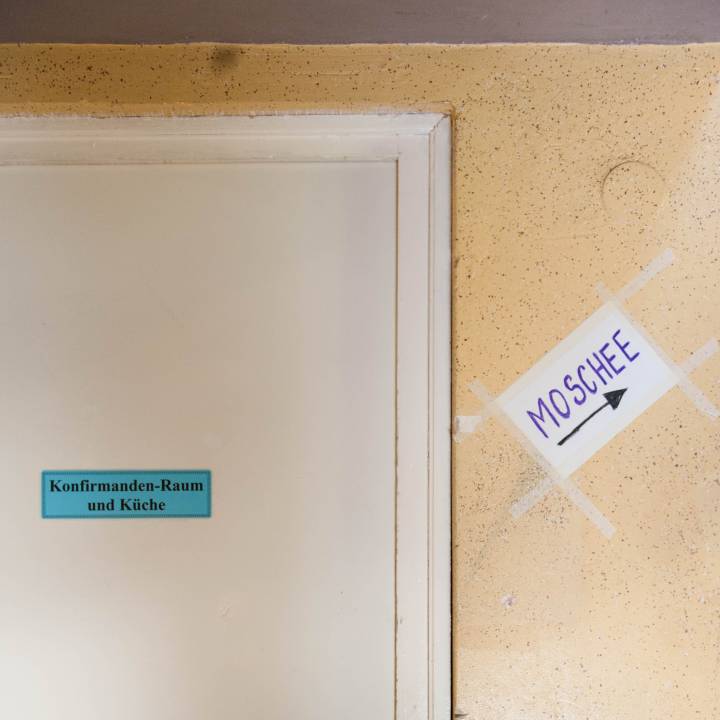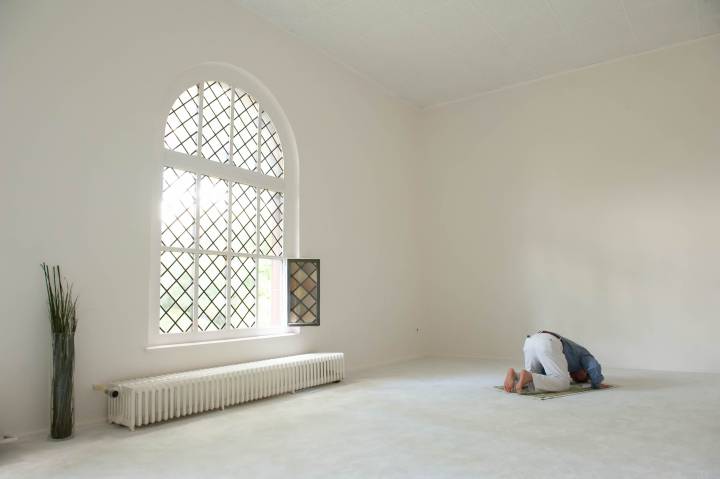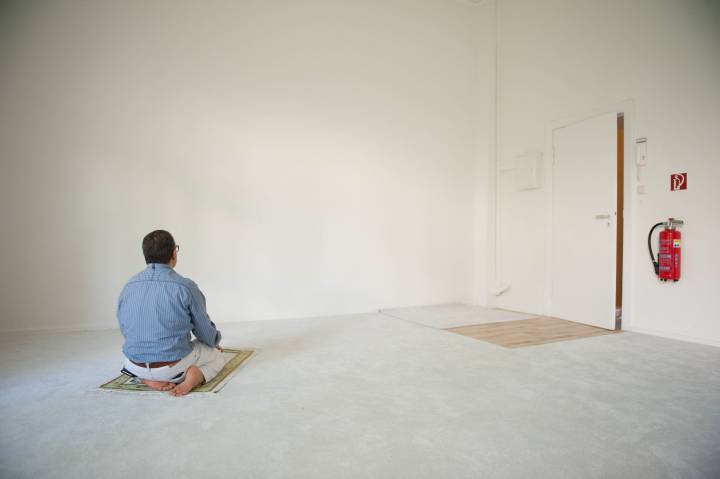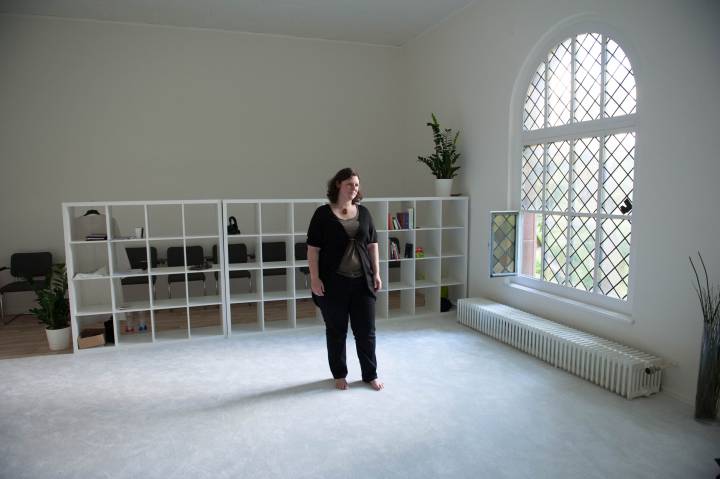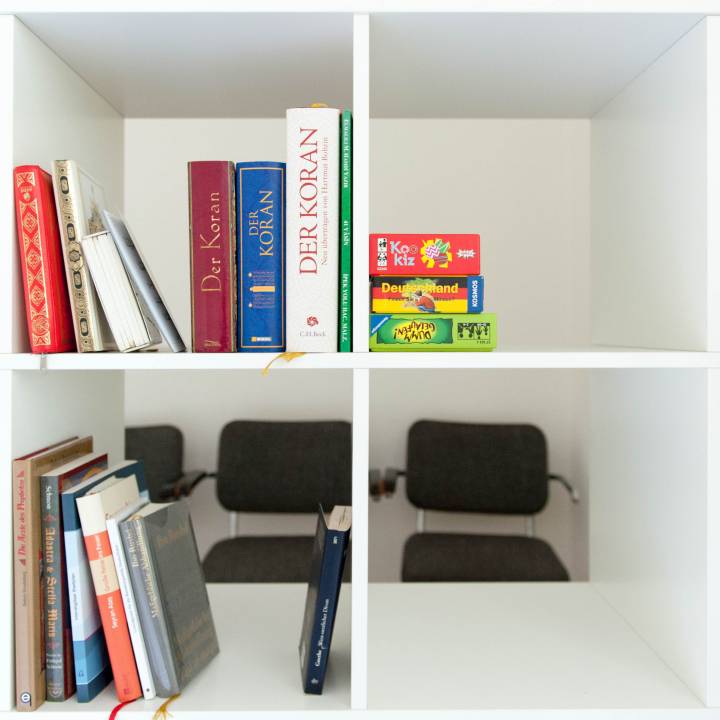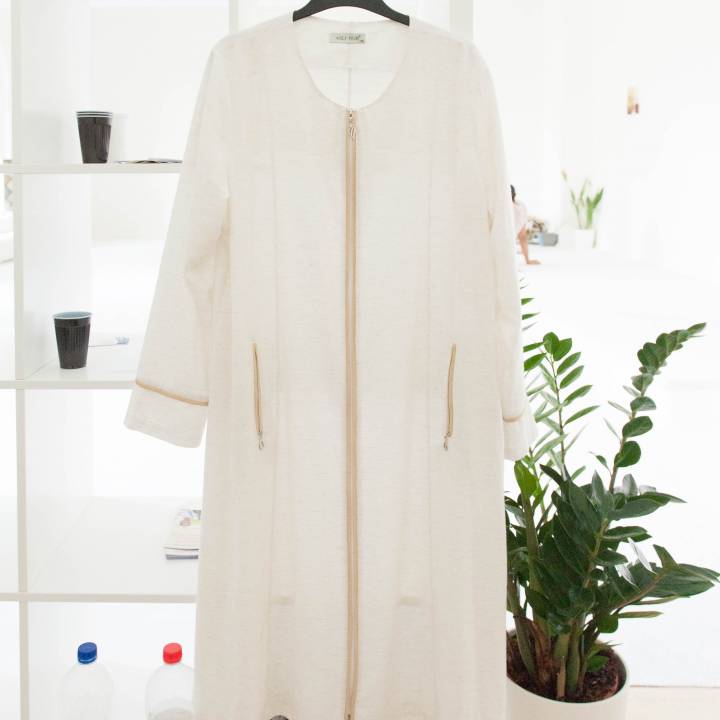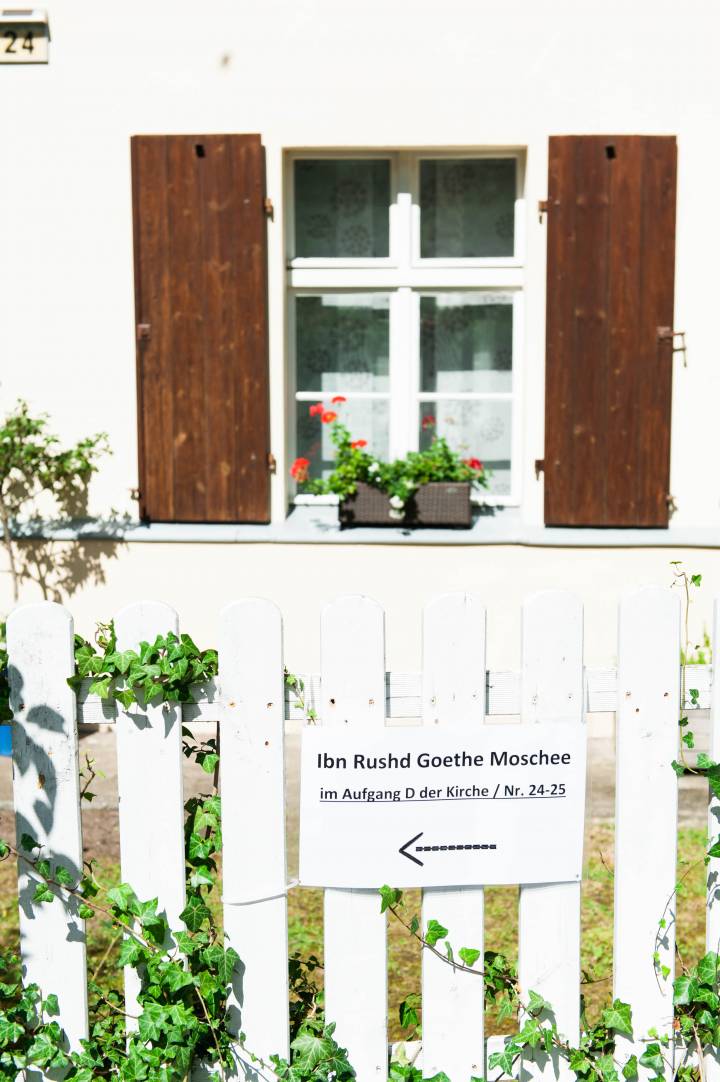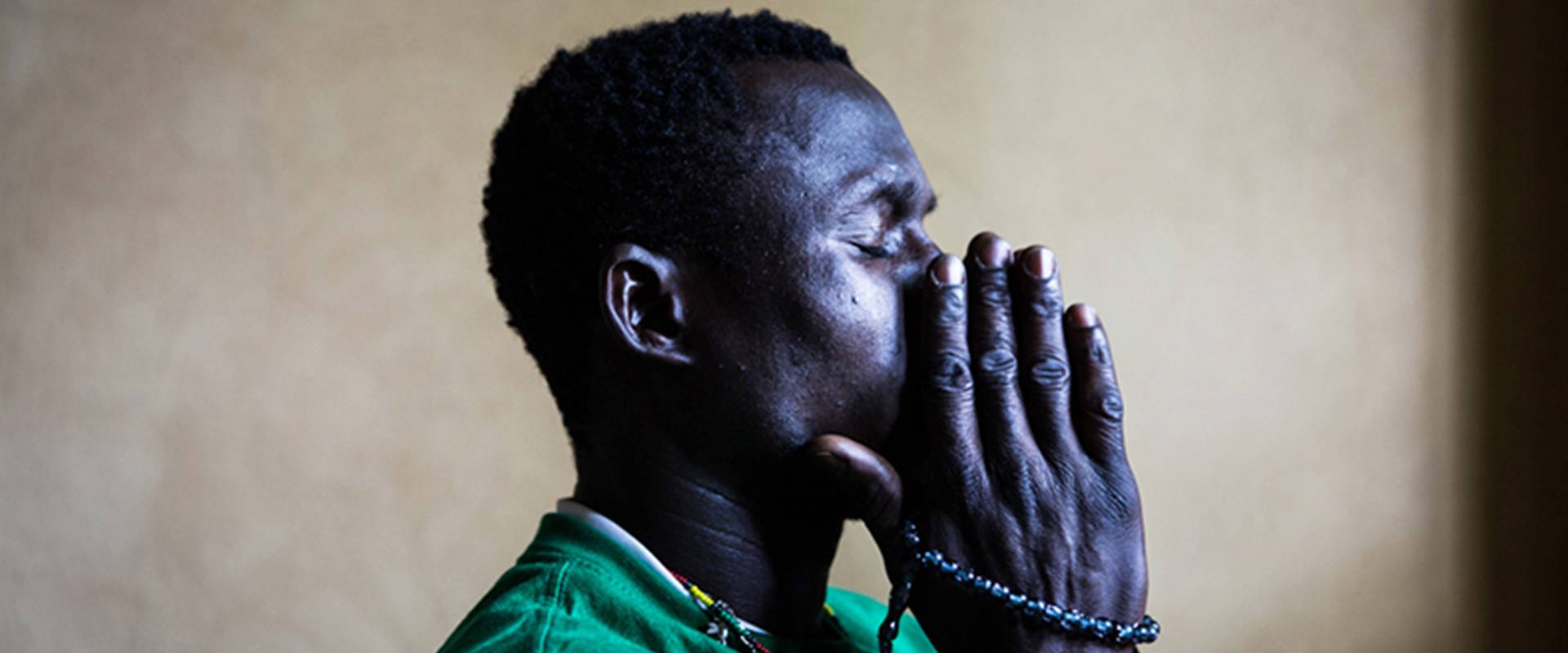The Ibn-Rushd-Goethe-Mosque in Berlin-Moabit drew much local and international media attention when it opened in June 2017. It is, by its own description, a space for a “secular, liberal Islam that separates worldly and religious power and aims for a contemporary, gender-unbiased interpretation of Islam”. The prayer hall is open to all groups, including the LGBT community.
With its open and inclusive ethos, the Mosque disrupted the Islamophobic narratives of Europe’s right wing media and politics, but it also hit a nerve with radical conservative Islam. The founders have received more than 100 death threats.
The Mosque occupies a third floor room in the Protestant Johanniskirche red brick building. Press photos of the opening show the room filled to the brim. When I visited the Mosque on a Sunday this August, I found a much quieter and more contemplative atmosphere. Potted plants decorate an otherwise simple, light-filled room. German children's games sit side by side with copies of The Koran and booklets tackling radical Islam.
What cannot be seen in the photos are most of the small group of believers who were present. Some can come to the Mosque only in secrecy, perhaps in the company of a trusted relative, mentor, or friend. Most prefer to avoid any public documentation of their attendance.

